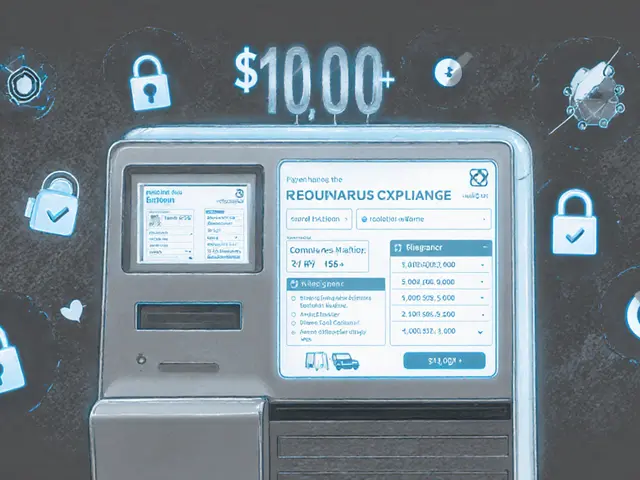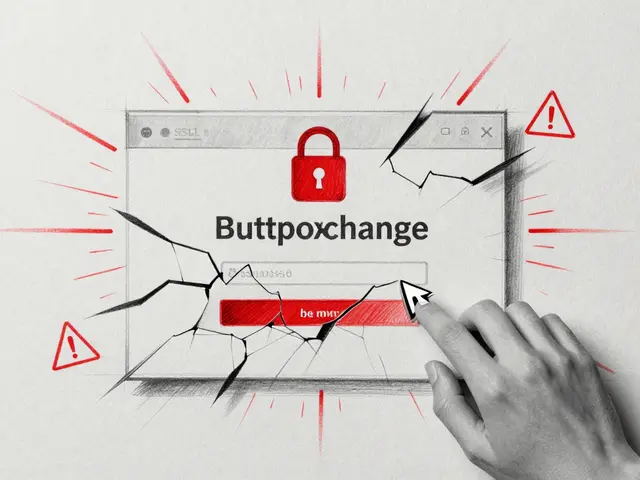Indonesian Crypto Regulatory Timeline
Before Jan 10, 2025
Bappebti regulated crypto as commodities under Regulation No. 8/2021, with amendments in 2022.
After Jan 10, 2025
OJK now oversees crypto as digital financial assets under Regulation No. 27/2024.
Key Regulatory Milestones
Key Regulations
Guidelines for conducting crypto asset physical market trading on commodity exchanges - set basic approval criteria.
Amendment that expanded the list of permissible tokens and tightened AML requirements.
Implementation of trading in digital financial assets covering offering, trading, settlement and infrastructure.
TL;DR
- Bappebti regulated crypto as a commodity until Jan102025.
- Licensing required crypto assets to be approved and registered with Bappebti.
- Key regulations: Regulation No.8/2021, amended by No.13/2022.
- On Jan102025 oversight shifted to OJK under Regulation No.27/2024.
- Existing licenses were carried over, but new financial‑service rules now apply.
What is Bappebti the Indonesian Commodity Futures Trading Supervisory Body that oversaw crypto assets as commodities?
If you’re hunting for information about Bappebti crypto licensing, you’ve come to the right place. Bappebti, short for Badan Pengawas Perdagangan Berjangka Komoditi, acted as Indonesia’s main regulator for crypto assets from the first crypto rules in 2019 up until the hand‑over ceremony on Jan102025. During that time, the agency treated digital tokens the same way it treats gold, oil or agricultural futures - as commodities that could be traded on a physical exchange.
Why did the government choose a commodity framework? Because early on, crypto was seen primarily as a trading instrument rather than a financial security. Bappebti’s job was to protect investors, prevent market abuse, and make sure every token had a clear approval pathway before appearing on an exchange.
How did the licensing process the step‑by‑step approval that crypto projects needed to follow under Bappebti’s regime work?
- Project submitter files a detailed application to Bappebti, including white‑paper, tokenomics, and KYC/AML procedures.
- Bappebti’s technical team reviews the asset against the criteria in Regulation No.8/2021.
- If the token passes the commodity‑fit test, Bappebti issues a registration number and adds the asset to the official list of “approved crypto assets.”
- The approved asset can then be listed on a physical crypto market that Bappebti has licensed, such as the Jakarta Crypto Exchange.
- Compliance checks are performed quarterly; any breach can lead to suspension or revocation of the license.
This approach created a clear, centralized list of tradable tokens. By mid‑2023, the list had grown to around 501 assets, including Bitcoin, Ethereum and Solana.
Key regulations that shaped Bappebti’s oversight
Three pieces of legislation formed the backbone of Bappebti’s crypto regime:
- Regulation No.8/2021 Guidelines for Conducting Crypto Asset Physical Market Trading on Commodity Exchanges - set the basic approval criteria.
- Regulation No.13/2022 Amendment that expanded the list of permissible tokens and tightened AML requirements.
- Regulation No.4/2023 Further clarification on which crypto assets could be traded on physical markets.
These rules gave Bappebti a solid legal foundation to screen tokens, monitor exchanges, and enforce market conduct.

The big shift: from Bappebti to OJK Indonesia’s Financial Services Authority, now responsible for crypto oversight
On Jan102025, a formal hand‑over (BAST) transferred crypto supervision from Bappebti to OJK. The move was required by Law No.4 of 2023 on Financial Sector Development and Strengthening (the P2SK Law). The new framework re‑classifies crypto assets as “digital financial assets” instead of commodities.
OJK introduced Regulation No.27/2024 Implementation of Trading in Digital Financial Assets, covering offering, trading, settlement and infrastructure. This regulation aligns crypto with traditional banking and securities rules, adds tighter consumer protection, and allows OJK to work together with Bank Indonesia on payment‑system aspects.
Comparing Bappebti and OJK oversight
| Aspect | Bappebti | OJK |
|---|---|---|
| Legal classification | Commodity | Digital Financial Asset |
| Primary regulation | Regulation No.8/2021 (amended 2022) | Regulation No.27/2024 |
| License focus | Physical market trading license for each token | Trader, custodian and service provider licenses under financial‑services law |
| Investor protection tools | Listing approvals, market‑surveillance | Fit‑and‑proper tests, capital adequacy, AML/KYC standards comparable to banks |
| Oversight body for payments | None (payment issues handled separately) | Bank Indonesia co‑regulates payment‑system functions |
The table shows that OJK brings a broader, financial‑services perspective while preserving most of Bappebti’s existing approvals. Existing crypto exchanges didn’t have to shut down; they simply had to apply for the new OJK‑type license.
Practical steps for crypto service providers after the hand‑over
- Review your current Bappebti registration number. Keep the document handy - OJK will ask for it during the transition audit.
- Map your activities to the categories defined in Regulation No.27/2024: are you a trader, a custodian, a token‑issuer, or a settlement service?
- Prepare a “fit‑and‑proper” dossier that includes board qualifications, AML policies, and financial statements. OJK’s capital‑adequacy threshold is IDR500billion for crypto‑exchange licenses.
- Submit an application through OJK’s online portal. The process now takes about 45days, compared with 30days under Bappebti, because of the added financial‑risk assessment.
- Update your AML/KYC tooling to meet the same standards as Indonesian banks. Expect regular on‑site inspections by both OJK and Bank Indonesia.
- Communicate the change to users. A short banner on your website explaining “We are now regulated by OJK” builds trust and satisfies consumer‑protection clauses.
Following these steps will keep your operation compliant and ready to tap into the next wave of institutional crypto interest that OJK’s framework is designed to attract.
What does the future look like for Indonesian crypto under OJK?
Analysts say the shift is more than paperwork. By placing crypto under the same regulator as banks and securities firms, Indonesia can issue clearer guidance on emerging trends like DeFi, NFTs, and tokenized assets. OJK’s “Digital Financial Innovation” (DFI) roadmap aims to pilot sandbox projects that let fintechs test new products with limited regulatory friction.
At the same time, the dual oversight with Bank Indonesia means that payment‑related features-like stablecoin settlements-will be tightly supervised, reducing the risk of runaway stablecoin use without proper reserves.
Overall, the change should make Indonesia a more attractive destination for foreign crypto platforms looking for a stable, well‑regulated market.
Frequently Asked Questions
What happened to Bappebti’s crypto licenses after Jan102025?
All existing Bappebti registrations were automatically recognized by OJK. License holders had to apply for the corresponding OJK license within 90days to continue operating.
Do I still need to register each crypto token with the regulator?
Yes. Under OJK’s framework, each token that will be traded on an exchange must be listed in OJK’s approved digital‑asset register, similar to the old Bappebti list but governed by financial‑services rules.
How does Bank Indonesia fit into the new regime?
Bank Indonesia oversees the payment‑system side of digital assets, such as stablecoin issuance and settlement infrastructure. It works alongside OJK, which handles trading and custodial services.
Will my crypto exchange need more capital under OJK?
OJK requires a minimum capital of IDR500billion for a crypto‑exchange license, higher than the previous Bappebti threshold. This aims to ensure liquidity and protect users.
Is there a timeline for new regulations on DeFi?
OJK’s Digital Financial Innovation roadmap expects a sandbox for DeFi projects to launch in Q32025, followed by formal regulations in 2026.






Holly Harrar
24 March, 2025 . 05:31 AM
If you're trying to get your head around the shift from Bappebti to OJK, the key thing is to check your old registration number – you’ll need it when you file the new licence. The Bappebti paperwork is still valid, but you’ll have to fill out OJK’s form within the 90‑day window. Also, make sure your AML/KYC policies are up to date, because OJK checks those more strictly. And don’t forget to update your website banner so users know you’re now OJK‑regulated. Good luck!
Vijay Kumar
24 March, 2025 . 16:04 PM
What a huge change for the Indonesian market! The hand‑over to OJK isn’t just paperwork; it actually opens the door for more institutional money to flow in. You’ll want to map your activities to the new categories – trader, custodian, or token‑issuer – because the licence you apply for depends on that. The capital requirement jumped to IDR 500 billion, which sounds scary but it’s meant to protect users. Keep your AML framework tight and you’ll glide through the audit. Stay pumped, the future looks bright!
Edgardo Rodriguez
25 March, 2025 . 02:37 AM
The transition from a commodity‑based oversight to a financial‑services framework, while seemingly bureaucratic, actually reflects a deeper philosophical shift, one that treats digital assets not merely as tradable commodities, but as integral components of a modern economy; this reconceptualisation, in turn, demands that regulators, exchanges, and investors alike, adopt a more holistic perspective, acknowledging the intertwined nature of technology, finance, and societal impact, and consequently, the regulatory scaffolding must evolve, lest it become anachronistic, and therefore, OJK’s Regulation No. 27/2024, with its emphasis on fit‑and‑proper tests, capital adequacy, and AML standards comparable to banks, serves as a pivotal instrument, guiding the industry toward sustainable growth, while still preserving the innovative spirit that sparked the crypto revolution; in essence, the hand‑over is not an endpoint, but a conduit, channeling the kinetic energy of digital finance into a regulated, yet vibrant, ecosystem.
mudassir khan
25 March, 2025 . 13:11 PM
From a regulatory standpoint, the hand‑over appears to be a mere rebranding exercise rather than a substantive improvement. The increased capital threshold imposes an unnecessary barrier for smaller exchanges, potentially stifling competition. Moreover, the duplication of oversight between OJK and Bank Indonesia may lead to regulatory arbitrage. The procedural complexity, coupled with the short transition window, could provoke operational disruptions. In short, the reforms may benefit large incumbents while marginalising emerging players.
Bianca Giagante
25 March, 2025 . 23:44 PM
It’s encouraging to see Indonesia moving towards a unified financial supervision model, as this should enhance consumer protection and market integrity. The alignment with Bank Indonesia on payment‑system issues introduces a valuable layer of oversight, particularly for stablecoin settlements. Nonetheless, stakeholders must remain vigilant regarding the implementation timeline, ensuring that legacy Bappebti licences are seamlessly transferred. Continuous dialogue between regulators and industry participants will be essential to mitigate any unintended consequences. Overall, the direction appears promising, provided the execution is handled with care.
Corrie Moxon
26 March, 2025 . 10:17 AM
Totally agree, the transition looks like a step forward, and keeping the communication lines open will help everyone adapt smoothly.
Jeff Carson
26 March, 2025 . 20:51 PM
Nice rundown! 😃 The OJK framework definitely seems more robust, especially with the fit‑and‑proper requirements. For anyone still on the fence, think of it as a chance to attract institutional investors who demand higher standards. Just remember to keep your AML procedures tight, and the licensing process should go fairly quickly. Looking forward to seeing more projects thrive under this new regime!
Anne Zaya
27 March, 2025 . 07:24 AM
So basically, if you’ve got a Bappebti licence, you just need to re‑apply with OJK, update your KYC stuff, and you’re good to go. Nothing too crazy, just a bit of paperwork.
Emma Szabo
27 March, 2025 . 17:57 PM
The regulatory evolution in Indonesia marks a pivotal chapter for the crypto ecosystem, and understanding its nuances is essential for anyone involved in the space. First, the shift from Bappebti to OJK reclassifies digital assets from commodities to digital financial assets, a subtle yet profound change that reshapes the legal landscape. This reclassification means that token issuers now operate under a financial‑services regime, bringing them closer to traditional banking oversight. Consequently, the licensing process has become more rigorous, demanding fit‑and‑proper assessments, higher capital buffers, and comprehensive AML/KYC frameworks. For existing exchanges, the good news is that their Bappebti licences were grandfathered in, but they must still apply for the new OJK licence within a 90‑day window to avoid disruption. The capital requirement of IDR 500 billion may seem daunting, yet it serves as a safeguard to ensure liquidity and protect users from sudden collapses. Moreover, OJK’s collaboration with Bank Indonesia introduces a dual‑layered supervisory model, covering both trading activities and payment system operations, which is especially relevant for stablecoin projects. The new Regulation No. 27/2024 also expands the permissible token list, allowing innovators to experiment with novel asset classes while remaining compliant. In practice, this means that projects should audit their tokenomics, governance structures, and consumer protection mechanisms before submission. On the operational side, firms need to upgrade their compliance tech stacks to meet the heightened reporting standards imposed by OJK. While the transition period may cause some temporary friction, the long‑term outlook is brighter, with the prospect of attracting more institutional capital seeking a well‑regulated environment. Additionally, the Digital Financial Innovation roadmap promises sandbox environments for DeFi and NFT experiments, slated for rollout in Q3 2025. These sandboxes will enable startups to test cutting‑edge solutions under a regulator’s watchful eye, reducing the risk of non‑compliance. Finally, market participants should keep an eye on the evolving guidelines, as OJK is likely to issue further clarifications on custody, insurance, and cross‑border token flows. In summary, the regulatory overhaul is a blend of stricter oversight and new opportunities, and those who adapt swiftly will position themselves at the forefront of Indonesia’s digital finance revolution.
Fiona Lam
28 March, 2025 . 04:31 AM
Honestly, this whole hand‑over feels like a power grab. OJK’s new rules are stricter, and if you’re not on board now, you’ll get left in the dust. Get your paperwork sorted, or you’ll be out.
OLAOLUWAPO SANDA
28 March, 2025 . 15:04 PM
Why should anyone care about OJK? Crypto will thrive regardless of any regulator, and these new rules just slow things down.
Alex Yepes
29 March, 2025 . 01:37 AM
In accordance with the recent regulatory amendments promulgated under the auspices of the Financial Services Authority (OJK), it is incumbent upon all market participants to meticulously align their operational frameworks with the stipulated capital adequacy requisites and governance standards. Failure to adhere to these directives may precipitate regulatory sanctions and jeopardize market integrity.
Sumedha Nag
29 March, 2025 . 12:11 PM
I’m not convinced the OJK shift is all that great – seems like they’re just trying to copy what other countries did, not really innovating.
Andrew Else
29 March, 2025 . 22:44 PM
Great, another layer of bureaucracy to jump through.
Susan Brindle Kerr
30 March, 2025 . 10:17 AM
Behold, the era of bureaucratic grandeur descends upon the crypto realm, smothering the wild spirit of decentralisation with a veil of solemn regulations!
Jared Carline
30 March, 2025 . 20:51 PM
While the regulatory body's intentions may appear noble, one must question whether the imposition of such stringent capital thresholds truly serves the broader market, or merely consolidates power among established financial entities.
raghavan veera
31 March, 2025 . 07:24 AM
It’s fascinating how the reclassification reshapes the narrative around digital assets, turning what was once viewed as speculative commodities into structured financial instruments, which could change investors’ perception entirely.
Danielle Thompson
31 March, 2025 . 17:57 PM
Stay compliant and keep users happy! 😊
Eric Levesque
1 April, 2025 . 04:31 AM
Indonesia must protect its economy, so these strict crypto rules are exactly what we need.
alex demaisip
1 April, 2025 . 15:04 PM
The compliance overhead, albeit substantial, aligns with OJK's strategic fintech integration paradigm.